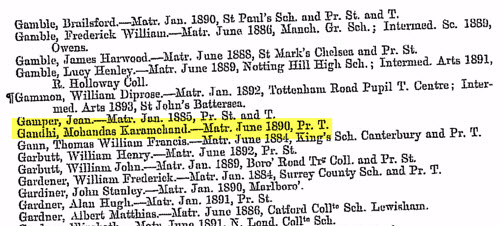Blog


Applying to Lineage Societies: Why Hire a Pro to Help You
A professional genealogist can help you apply to lineage societies. Joining is a time-honored way to honor your heritage and document your family history research. But it’s not easy! Here’s why even experienced genealogists may want to hire a professional to help with the process.

Thanks to Legacy Tree Genealogists for supplying this guest blog post.
Applying to lineage societies
Do you have an ancestor who lived in Colonial America when the Revolutionary War was fought, or perhaps earlier in Jamestown, Virginia? Does your ancestry extend back to New England when the Mayflower arrived? If so, there are various lineage societies you could consider joining:
- The National Society of the Sons of the American Revolution (SAR),
- The National Society of the Daughters of the American Revolution (DAR),
- The National Society of the Children of the American Revolution (CAR),
- the General Society of Mayflower Descendants (GSMD),
- the Jamestowne Society,
- Society of Families of the Old Northwest Territory,
- state pioneer societies, ethnic societies, Civil War societies, and many more.
 While each organization has different requirements for their lineage society application, most have the same principles: prove a connection from yourself to the person of interest by use of vital records (where available). Where not available, other documentation that proves family connections can be used. (DAR now also accepts DNA evidence.)
While each organization has different requirements for their lineage society application, most have the same principles: prove a connection from yourself to the person of interest by use of vital records (where available). Where not available, other documentation that proves family connections can be used. (DAR now also accepts DNA evidence.)
You may not know that most societies allow you to “piggy-back” on applications they have previously accepted. Let’s say your second cousin Steve already joined a society based on your common patriot (or pioneer) ancestor, Alexander Smith. You would just need to provide documentation proving your connection to your parents, your relevant parent’s connection to his/her parents, and your relevant grandparent’s connection to your common great-grandparents, who were already mentioned in Steve’s application. You may then be able to reference Steve’s application for the remainder of the lineage going back to Alexander Smith.
Overall, this may sound like a simple process. But it often takes quite a bit of work because the records needed to prove each generational link are not always readily available–and sometimes they just don’t exist at all.
Why get help when applying to lineage societies
Below are five ways that a professional genealogist can help you apply to lineage societies:
1. Help you determine how to apply. As we mentioned, each lineage society has different requirements, so you’ll want to be sure you know what they expect in order to be as efficient as possible in gathering documentation. A professional can help you determine exactly what documentation is required and locate contact information for those with whom you need to work to submit your application.
2. Identify where your research should stop and start. There is no need to reinvent the wheel, as the saying goes. If your lineage ties into one that has already been acceptably documented by another member of the society, you should use it! A professional genealogist can help you identify any previous lineage society applications that have already been approved for your lineage. This single step can save you a lot of time and money.
3. Organize your information. A professional genealogist can work with you to determine what documentation you already have and what you will need to order. They can help you order copies of missing vital records or find acceptable substitutes in archives, libraries, and online.
 4. Conduct in-depth research as needed. Many times, at least one ‘problem’ generation requires in-depth research, circumstantial evidence, and a proof summary in order to make the connection. A well-written proof summary explains how all the circumstantial evidence fits together to support the generational link, and often aids the applicant in obtaining membership when not enough concrete documentation is available (or when it conflicts). This often involves delving into land records, tax lists, probate records, and other more obscure sources to find any and all clues and pieces of information that can be used to tie two generations together. It can be a time-consuming task. A professional genealogist can do this efficiently and thoroughly.
4. Conduct in-depth research as needed. Many times, at least one ‘problem’ generation requires in-depth research, circumstantial evidence, and a proof summary in order to make the connection. A well-written proof summary explains how all the circumstantial evidence fits together to support the generational link, and often aids the applicant in obtaining membership when not enough concrete documentation is available (or when it conflicts). This often involves delving into land records, tax lists, probate records, and other more obscure sources to find any and all clues and pieces of information that can be used to tie two generations together. It can be a time-consuming task. A professional genealogist can do this efficiently and thoroughly.
5. Compile and present all records to the lineage society for admittance. You’ll be the one to present or submit your documentation, but professionals can help you get it all ready so that you’ll be as prepared and organized as possible.
Save time and money when applying to lineage societies
A well-prepared lineage society application often shortens the waiting period to be accepted into a society because it is easier to verify and follows the rules of the society. If an application is poorly prepared, it can take several submissions before acceptance into the society is granted. And of course, the lineage society determines what they will and will not accept as proof, so there’s never a guarantee. They may request additional information, and then you have to go back and keep digging! But since professional genealogists have experience working with the various societies and know what types of documentation are usually accepted, working with a pro can make the application process to a lineage easier, more efficient, and in the end, more rewarding.
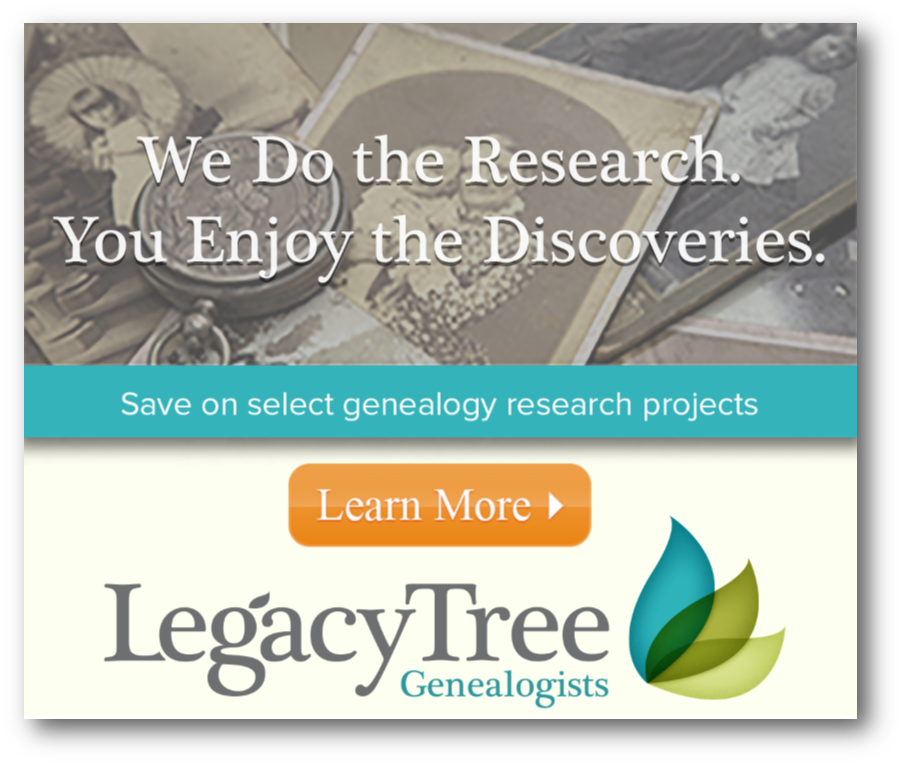 If you have an ancestor in your lineage who may qualify you to join a lineage society, experts at Legacy Tree Genealogists can help you gather your documentation and prepare your application. They are the world’s highest client-rated genealogy research firm. Founded in 2004, the company provides full-service genealogical research for clients worldwide, helping them discover their roots and personal history through records, narratives, and DNA. Based near the world’s largest family history library in downtown Salt Lake City, Utah, Legacy Tree has developed a network of professional researchers and archives around the globe.
If you have an ancestor in your lineage who may qualify you to join a lineage society, experts at Legacy Tree Genealogists can help you gather your documentation and prepare your application. They are the world’s highest client-rated genealogy research firm. Founded in 2004, the company provides full-service genealogical research for clients worldwide, helping them discover their roots and personal history through records, narratives, and DNA. Based near the world’s largest family history library in downtown Salt Lake City, Utah, Legacy Tree has developed a network of professional researchers and archives around the globe.
Contact them today to discuss your options–and your ancestors. EXCLUSIVE OFFER for Genealogy Gems readers! Receive $100 off a 20-hour+ research project from Legacy Tree Genealogists with code GEMS100. Offer good through December 31, 2017.
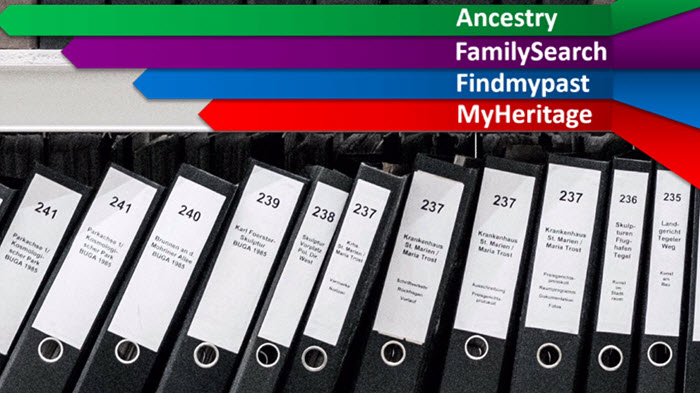
New Records at the Genealogy Giants Websites
Enjoy millions of new records from the ‘Genealogy Giants’ websites this week: Ancestry, FamilySearch, Findmypast, and MyHeritage! New collections are now available for England, Ireland, the Netherlands, and Denmark. Also new are two collections of WWII Holocaust records.

England Records at Findmypast & Ancestry
A massive amount of new records at the ‘Genealogy Giants’ websites were published this week. First up are millions of new English records collections. We’ll start with Findmypast’s new databases:
Surrey, England
- Lay Subsidies 1524-1645: early taxation records from the Tudor and Jacobean periods.
- Court Cases 1391-1835: The records contain cases from four courts and will give you the necessary references for accessing the original records in The National Archives.
- Wills & Probate Index, 1470-1856: The area covered includes the old county of Surrey in the southeast of England, which contains parts of South London.
British Army Records
- Commonwealth War Graves Commission Debt Of Honour: Transcripts will reveal when your ancestor died, their rank, regiment service number, and age at death.
- British Armed Forces, Roman Catholic Registers: The registers comprise records for the British Army, Royal Air Force, and Royal Navy stationed at home and abroad between 1836 and 1975. You can also browse the original registers for this collection.
- British Army Lists 1839-1946: Includes details such as birth date, rank, and unit. You may also browse by year and title.
- East Surrey Regiment 1899-1919: Spanning the Boer War and the First World War, this index may reveal rank, regiment, and battalion, as well as whether your ancestor was wounded or received a medal.
- Railwaymen Died in The Great War: This index of records comes from the National Railway Museum website and may contain details of your ancestor’s pre-war career, military service, and death.
Next, we head to Ancestry for even more new English record collections.
- University of London Student Records, 1836-1945
Records from the third oldest university in England, including students who attended other institutions and took University of London examinations as external students. (see image right for one of their most famous students!)
- Dreadnought Seamen’s Hospital Admissions and Discharges, 1826-1930: This collection comes from the National Maritime Museum, Greenwich, England.
- Berkshire Electoral Registers, 1840-1965: This database contains yearly registers listing names and residences of people in Berkshire, who were eligible to vote in elections. These year-by-year registers can possibly also reveal a bit about property they owned.
- Suffolk Extracted Church of England Parish Records, 1538-1850: The records include baptisms/christenings, burials, marriages, tombstone inscriptions, obituaries, tax lists, wills, and other miscellaneous types of records.
- UK Absent Voter Lists, 1918-1925, 1939: The Absent Voter Lists record the civilian address of the absent voter, but more importantly, they give service numbers and regimental details.
Lastly, FamilySearch has a new collection of Essex Parish Registers, 1538-1997. This collection contains christening, marriage, and burial entries.
Ireland – Findmypast
New at Findmypast for Ireland are British Army, Irish Regimental Enlistment Registers 1877-1924. This collection has enlistment registers from five Irish regiments serving in the British Army. The regiments included in these records are Connaught Rangers, Leinster Regiment, Royal Dunlin Fusiliers, Royal Irish Regiment, and Royal Munster Fusiliers.
A new Irish newspaper title has also been added at Findmypast: the Carrickfergus Advertiser 1884 – 1919. The collection currently contains over 1,300 issues and will be updated further in the future.
Netherlands Public Records at FamilySearch
New at FamilySearch: Netherlands Archival Indexes, Public Records. This collection contains nearly 3 million records that cover events like population registration, emigration and immigration, military enrollment and more.
Denmark – 1930 Census Free at FamilySearch
The Denmark Census, 1930 is now available for free at FamilySearch! “Commonly indexed fields include principle name, locality data, gender, marital status, and relationship to head of household.” The images and index were provided in partnership with MyHeritage.
World War II Holocaust Records and MyHeritage and Ancestry
New at MyHeritage are Auschwitz Death Certificates, 1941-1943. Information listed includes name, birth date, death date, birthplace, residence, and religion. The information originates from the Auschwitz Sterbebücher (Death Books).
Ancestry also has a new collection of Romania select Holocaust Records 1940-1945 (USHMM). This collection is primarily in Romanian, but may also be in Hungarian. It was indexed by World Memory Project contributors from the digitized holdings of the United States Holocaust Memorial Museum.
Get the most out of the top genealogy records websites
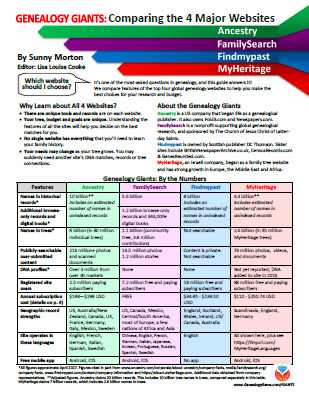 “Which genealogy records membership website should I use?” It’s one of the most-asked questions in genealogy. There are so many features on each site–and an apples-to-apples comparison is laden with challenges. But Genealogy Gems Contributing Editor Sunny Morton has the answers for you in the jammed-packed Genealogy Giants cheat sheet. Use it to quickly and easily compare all of the most important features of the four biggest international genealogy records membership websites: Ancestry.com, FamilySearch.org, Findmypast.com, and MyHeritage.com. Then consult it every time your research budget, needs or goals change. Tables, bulleted lists, and graphics make this guide as easy to use as it is informative. Click here to learn more and grab your copy.
“Which genealogy records membership website should I use?” It’s one of the most-asked questions in genealogy. There are so many features on each site–and an apples-to-apples comparison is laden with challenges. But Genealogy Gems Contributing Editor Sunny Morton has the answers for you in the jammed-packed Genealogy Giants cheat sheet. Use it to quickly and easily compare all of the most important features of the four biggest international genealogy records membership websites: Ancestry.com, FamilySearch.org, Findmypast.com, and MyHeritage.com. Then consult it every time your research budget, needs or goals change. Tables, bulleted lists, and graphics make this guide as easy to use as it is informative. Click here to learn more and grab your copy.
Disclosure: This article contains affiliate links and Genealogy Gems will be compensated if you make a purchase after clicking on these links (at no additional cost to you). Thank you for supporting the free Genealogy Gems podcast and blog!
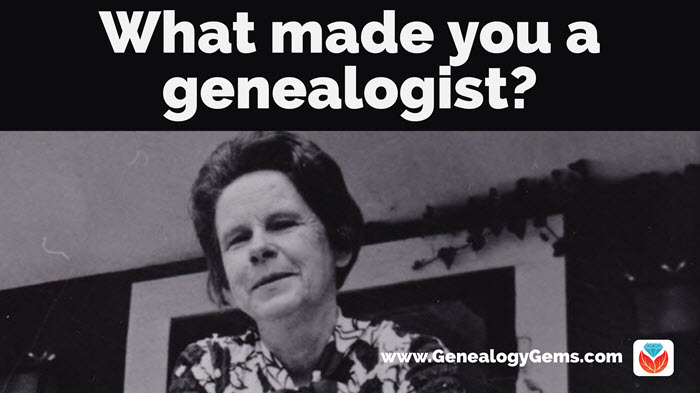
What Made You a Genealogist? Margaret Linford’s Story
To be the family historian in a clan is an honored role. But to fulfill it effectively, you must include all stories–including your own. So here’s a prompt and a story to get you started: What led you to become a genealogist?

“Your stories are the family history of your descendants,” is something you’ve heard me say on the Genealogy Gems Podcast. In her first article here at Genealogy Gems, I’ve asked genealogist Margaret Linford to share one of her own stories with you: how she came to be a genealogist. I’m anxious for you to get to know Margaret because she has some wonderful gems in store for you in the months ahead. Grab your favorite cup of tea and enjoy!” -Lisa Louise Cooke
What Made Me a Genealogist?
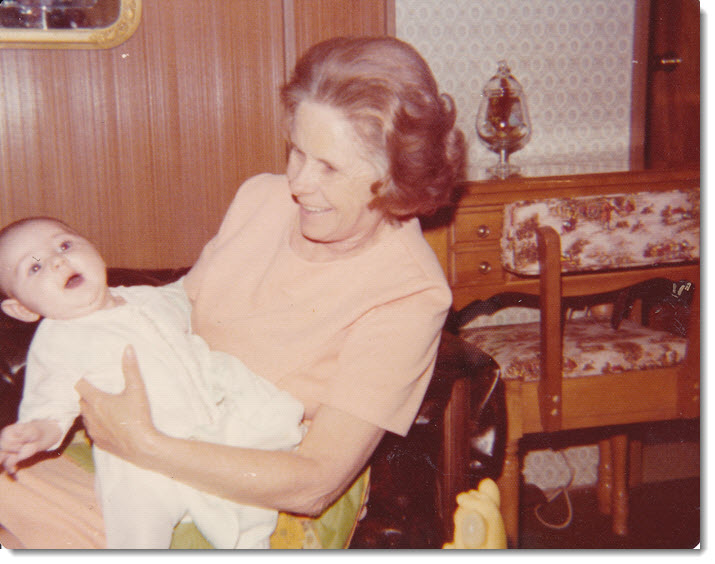
Grandma Overbay in 1974 with baby Margaret. Photos courtesy of Margaret Linford.
I can remember, as a little girl, walking in after school. The aroma of freshly baked biscuits or bread always filled the air and enveloped anyone who walked through the door. The house was spotless. The bed linens were crisp.
This was the home of my Grandma Overbay. She was completely devoted to her family. Her home was a refuge for many when they found themselves struggling through life. No one was turned away and she made sure that those who entered her house always felt welcome.
My answer to the question, “What made me a genealogist?” can be traced back to this one woman and my countless experiences with her.
The Greatest Gift
I can remember many lazy summer evenings on the porch, listening to stories of her childhood, accompanied by the rhythmic sound of crickets. Through Grandma’s stories, I was transported back in time. In my mind’s eye, I could see her as a little girl picking blackberries on a mountaintop and following the local doctor from house to house as he treated patients. She lived in a small community, where it was a common practice, in that time, for doctors to make house calls. She had an insatiable curiosity, which prompted these tag-along visits. I imagine it was on these “house calls” that she came to love hearing stories. I loved being able to envision her as a carefree young girl, being taught life lessons, as she served as an unofficial intern to this kind community doctor.
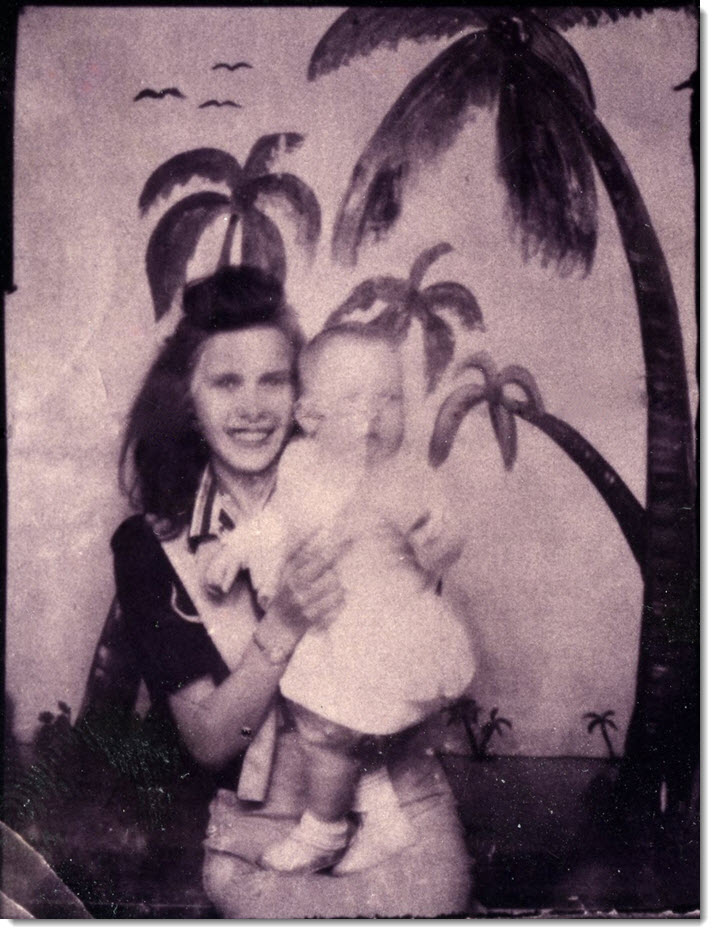
A younger version of Grandma Overbay
She painted pictures on the canvas of my mind and introduced me to my ancestors. With each story she told, she was “downloading” some of her memories into the brains of her children and grandchildren. This was one of the greatest gifts anyone has ever given me: the gift of her time and her stories.
“With each story she told, she was ‘downloading’ some of her memories into the brains of her children and grandchildren. This was one of the greatest gifts anyone has ever given me: the gift of her time and her stories.”
I don’t think my grandma realized how important her stories would be to creating a strong family narrative. But her legacy lives on, thanks to the time she invested in a budding family genealogist.
The Master Storyteller
I feel fortunate to have been the granddaughter of this master storyteller. She created characters and made my ancestors come to life. They had traveled the path of life that I was just beginning, and had much wisdom to pass down to me. My grandma was deliberate in her attempts to transmit this wisdom.
Life lessons were always embedded within the stories. She often told a story that was related to her by her father. He had elected to disregard some of his mother’s wise counsel with regard to a person he wanted to date. He later learned that his mother truly knew what was best and he could have been spared an agonizing experience if he had chosen to heed her counsel. This theme of “honoring father and mother” was woven into many of her stories.
I learned from her that everyone has something to teach us–if we choose to take time and listen to the people we encounter on a day-to-day basis. Grandma believed in devoting her full attention to people. She would stop everything she was doing to lend an ear to someone who needed to talk. In these moments, she was offering her friendship and genuine concern. She was a listener, always sifting through the seemingly mundane to discover bits of wisdom and life lessons she otherwise may not have learned. She taught me, in word and by example, that life can be enriched as we take time to hear each other’s stories.
Pearls of Wisdom
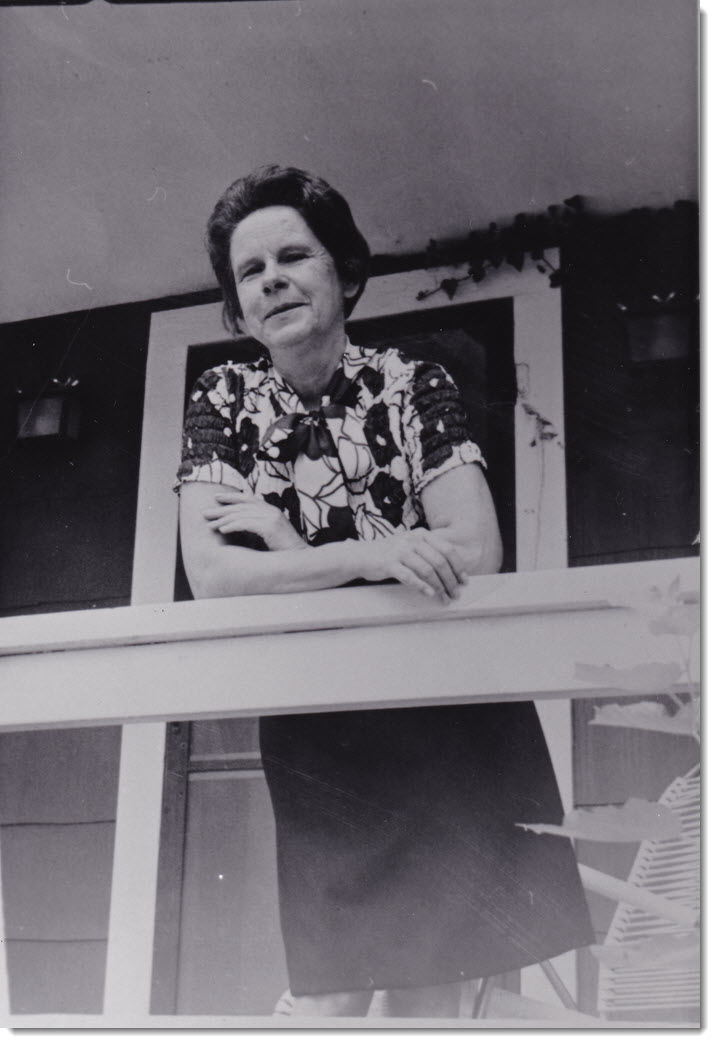
Margaret Poston Overbay in the early 1970s
Through the successes and disappointments of my ancestors, they left their children and grandchildren pearls of wisdom. These pearls are strung together, as we remember stories of the past. The greatest “heirloom” I ever inherited was this “string of pearls,” given to me one story at a time.
Six years ago, when I was asked to begin writing a bi-weekly column for my hometown newspaper, this heirloom is what prompted me to christen it “String of Pearls.” There is an even deeper meaning tucked into the name for me. I share the name “Margaret” with my grandmother and great-grandmother. I grew up often resenting being given such an “old” name. As I have matured, I have come to love it. To my delight, I have found that the name, which means “pearl,” has been used for many generations in my family. I am but one in a long string of “pearls.”
There are people like my grandma within each family. They are the keepers of the family stories. They seem to have a special calling to pass along the wisdom and knowledge of previous generations. There is an old proverb that says, “You live as long as you are remembered.” We are remembered as long as our stories are told, and it starts with you telling your story.
Questions Worth Asking
What is it that ignites the spark within someone’s heart to possess a love of family history, to take their rightful place as the “keeper” of the stories? What motivates certain individuals to be so dedicated to searching out their ancestors? What made my Grandma so intent on transmitting these family stories to future generations? I never had the opportunity to ask her that question. I had no way of knowing that her presence would be snatched away so soon. I often find myself repeating the phrase, “if I had only asked.” Perhaps you have, upon occasion, had the same thought with regard to your own family members.
Though we may have some regrets about unanswered questions, it’s never too late for us, as family historians, to start answering these questions ourselves. What inspired you to delve into your family’s history? Was it a grandparent, a photograph, or a family mystery that you wanted to solve? What prompted you to first seek out your ancestors?
As I answered these questions for myself, I was reminded of the emotional connection to my Grandma. A flood of memories came back to me, serving to remind me that these family ties last long after death. Our ancestors live on through us and through the stories they left behind. The image of my Grandma sharing her stories on the front porch will be the image that comes to mind the next time someone asks me what made me a genealogist.
Genealogy Origins
In recalling my own “genealogy origins,” I made a startling discovery. I realized that my children are well acquainted with stories of their grandparents and great-grandparents, but know little about the early life experiences of their own mother and father. I have become so focused on telling them stories from previous generations, that I have entirely neglected to tell them my own! After all, it as important to capture our own memories and experiences as it is to save our ancestors from being forgotten. Now I have a renewed commitment to preserve these stories and emotional connections for my own children and future grandchildren.
More to Come
I look forward to sharing more of my stories here with you at Genealogy Gems, as well as some good old tried and true research strategies to help you on your genealogical journey. In this first post, thank you for letting me share my genealogy origins story with you. I invite you to take some time to reflect on your own genealogy origins and go back in your mind to a place and time when you first felt the desire to search out your own ancestors. Who was it or what was it that ignited this spark within you? “What made you a genealogist?”
Share Your Story
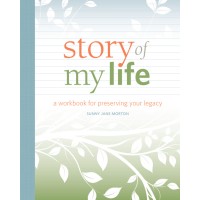 Leave a comment below to share your own “genealogy origins” story. Or, if you’re ready to capture more of your life stories, consider purchasing the life-story writing guide, Story of My Life: A Workbook for Preserving Your Legacy by Genealogy Gems Contributing Editor Sunny Morton. It’s packed with journaling prompts for every phase of life–from childhood to retirement–and opportunities to reflect on the relationships and experiences that have shaped you. Give future generations the gift of your life’s stories and lessons: the pearls you have to pass on.
Leave a comment below to share your own “genealogy origins” story. Or, if you’re ready to capture more of your life stories, consider purchasing the life-story writing guide, Story of My Life: A Workbook for Preserving Your Legacy by Genealogy Gems Contributing Editor Sunny Morton. It’s packed with journaling prompts for every phase of life–from childhood to retirement–and opportunities to reflect on the relationships and experiences that have shaped you. Give future generations the gift of your life’s stories and lessons: the pearls you have to pass on.

